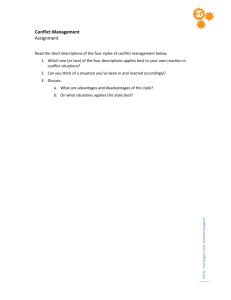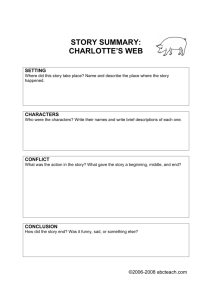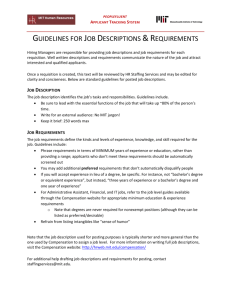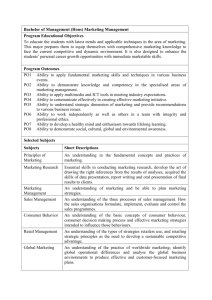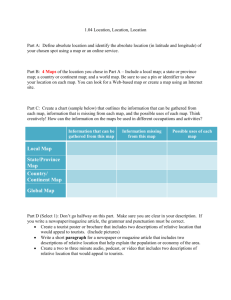Suffolk Public Schools* Lead Teachers
advertisement
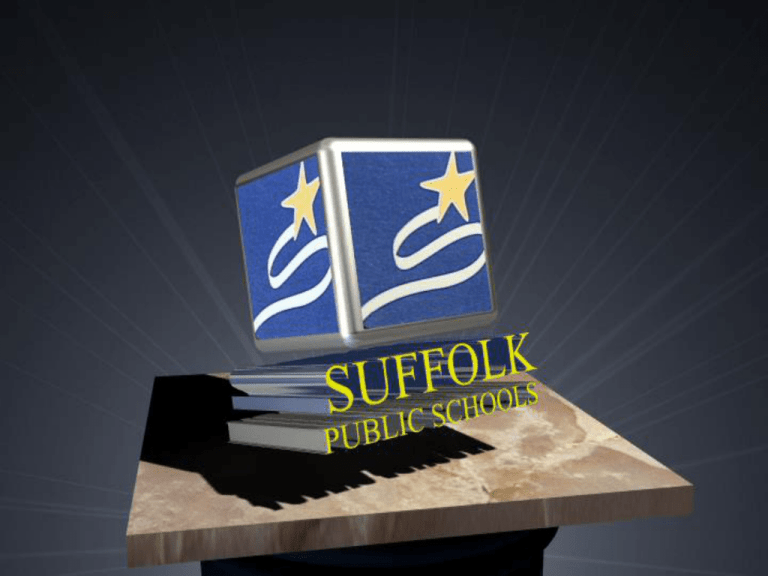
School Board Meeting September 13, 2012 Elementary Middle Wendy Hymons - History Susan Rawls - English Julie Moyer - Science Gwendolyn Best - Math Katrina Cary English and History Julie Byrd Math and Science High Ashley Alston - Math and Science Lisa Brooks - English and History Areas Descriptions • Support for new teachers T.A.R.G.E.T. • Meet twice a month, specific topics or individual (Teachers assistance Aiming for Rewarding Goals • Provide feedback and follow-ups, classroom visits and Effective • Support classroom management, technology, testing, Techniques) parent/teacher conferences, special education, and student engagement Areas Descriptions • Stakeholder Training Professional - Curriculum and instructional training for staff: Development/ general education teachers, special education Meetings teachers, para-professionals - Early Start and Title I workshops (parents and teachers) - Content specific mathematics workshops - Curriculum review workshops and curriculum overviews - PTA presentations and kindergarten kickoff - Phonological Awareness Literacy Screening (PALS) Descriptions Areas Professional Development/ Meetings • Stakeholder Training - School-University Research Network (SURN) literacy study group - Division-wide staff development days - Professional Development Academies (PDAs) • Meetings - Steering Committee and Academic Coaches meetings - City-wide content/subject/grade level meetings - Principal/assistant principal, faculty, vertical cluster meetings - VDOE content review representatives Areas Classroom Support Descriptions • Model lessons, observe and provide feedback • Participate in individual and grade level planning • Provide classroom management strategies • Provide resources (parent/teacher resource guides, curriculum reference guides, etc.) • Provide building level support during opening and closing of schools, testing, summer school, etc. • Facilitate peer observations Descriptions Areas • School Improvement Support School Improvement • Representation on Leadership and Data Team • Conduct Classroom Observations • Participate in the interview process for School Improvement (Academic Review) • Support Instructional Strategies • Provide Support as it relates to: curriculum alignment, use of time and school scheduling, systems and processes, school improvement planning, school culture, professional development, instructional methods or model programs, use of data for making decisions Areas Curriculum Writing Descriptions • Participate on Virginia Department of Education committees (Standard Setting Item and Test Review, VGLA Range Finding, VMAST Item Support Review) • Organize and provide goals for summer/ implementation committees • Develop writing prompts and rubrics, monitor and provide feedback on writing folders • Provide curriculum/resource alignment documents (embedded in the locally developed scope and sequences for grades 6 through 12 and included as a separate resource for elementary for K-5 science and social studies) Areas Descriptions Document • Develop and/or compile and post curriculum Library in SOFA resources such as: (resources for - local pacing guides teachers and - curriculum frameworks administrators) - content vocabulary - math formula sheets - writing resources (prompts, rubrics, etc.) - Instructional Support Request forms - local and state testing blueprints - sample lessons and activities - suggested reading lists - website resources https://sof a.spsk12.n et/departm ents/doclib _ms.asp Descriptions Areas STAR (resources for teachers, parents, and students) • Create and Distribute - Content Review Notes - Curriculum Reference Guides for Parents - Power Point presentations - Lessons and activities - Links to web-based games - Web quests - “Quizlet” vocabulary review program, etc. http://star.spsk 12.net/ Areas Odyssey/ Compass Learning Descriptions • Provide support and training for Odyssey/Compass Learning (an instructional supplement for grades 6 through 12). https://odyssey .spsk12.net/clo login.aspx Descriptions Areas Curriculum Management through GradeSpeed (resources for teachers and administrators) • Develop and post - Look-a-like practice items - Best-practice lessons - Committee meeting minutes - Archived professional development documents - Simulated Technology Enhanced Items - Understanding by Design instructional units https://gradesp eed.spsk12.net /cm/login.aspx Areas Curriculum Review Workshops Descriptions • Review upcoming standards • Collaborate on instructional resources and bestpractice lessons • Convey important information from Virginia Department of Education, Tidewater Team for Mathematics, and Math/Science Coalition of Hampton Roads, etc. Areas Descriptions Community • Facilitate partnerships with local businesses and Partnerships industries to provide classroom support, enrichment activities, competitions and projects aligned with the Virginia Standards of Learning such as: - Daughters of the American Revolution - Lockheed Martin - Peanut, Soil and Water Conservation District - Nansemond County Farm Bureau - Northrop Grumman - Riddick’s Folly House Museum - Chesapeake Bay Foundation Descriptions Areas Community Partnerships - Nansemond Indian Tribal Association - City of Suffolk Public Library System - Jefferson Lab - Suffolk Center for Cultural Arts - Rule of Law Project - Suffolk American Legion - Nansemond River Preservation Alliance, etc. Areas Creating Assessments Descriptions • Responsibilities: - Develop questions individually and through curriculum development committees, enter questions into Standards Of Learning Online (SOLO2), edit questions - Ensure that questions have proper SOL alignment - Develop questions with a high level of rigor - Build assessments in SOLO2 - Lock assessments for testing https://solo2.s psk12.net/testb ank_default.asp Areas Creating Assessments Descriptions • Responsibilities: - Provide opportunities for students to assess online at the local level (grades 3-12) - Analyze released tests and develop look-a-like items - Revise test development based on the released tests https://solo2.s psk12.net/testb ank_default.asp Descriptions Areas Creating Assessments • Types of Assessments: - Pre-assessments - Post-assessments - Nine weeks and benchmark assessments - Mid-point assessments - A/B quizzes - SOL mock tests - Local end-of-course assessments - Summer school assessments https://solo2.s psk12.net/testb ank_default.asp Areas Descriptions Data Reflections • Analyze state and local data to include: - Student Performance by Question reports - SOL category performance reports - Item analysis - Subgroup analysis - Comparison reports • Use data to drive professional development, resources, and future assessment focus https://solo2.s psk12.net/testb ank_default.asp https://arm.sps k12.net/ Areas Data Reflections Descriptions • Develop, review, and revise data reflection pages as necessary for teachers and principals • Assist teachers in performing student and class analysis using data notebooks • Assist teachers in using the Assessment Results Monitor (ARM) to gather subgroup analysis https://solo2.s psk12.net/testb ank_default.asp https://arm.sps k12.net/ Data Analysis of First Nine Weeks Test Top Teacher:___________________________ Insert Item Analysis report/SOL Objective from SOLO Complete the following: Refer to your SOL objective percentages. Which objectives were below 80%? What do you think attributed to this? Complete this chart with the information. Areas of Concern: SOL Question Description Specific testing vocabulary, concepts, or skills students seem to misunderstand Look at your parent reports. List any students who have not achieved mastery on tested objectives. Determine a timeframe for retesting (based on blueprint) and a plan for remediation. SOL Students Timeframe for Remediation retesting Areas Academic Review Descriptions Academic Review – (fall): • Conduct observations of teachers and building programs; review lesson plans and data notebooks; conduct student interviews; identify indicators for improvement based on observations and assign schools’ essential actions necessary for improvement • All lead teachers must participate in an academic review at a different level (i.e. a high school lead teacher participates in all secondary level academic reviews as well as one elementary academic review and vice versa) Areas Academic Review Descriptions Academic Review Follow-Up (winter/spring): • Participate in mid-year school improvement plan meetings with principals • Conduct observations of teachers and building programs; review lesson plans and data notebooks; review evidence provided by schools; evaluate progress made on essential actions and provide a rating of progress in the form of rubric reviews Creating Local Benchmark Assessments Creating and revising curricular documents Mentoring and training new teachers Attending meetings (building administrators and classroom teachers, data teams and school leadership teams) Modeling best practices Conducting in-services Providing instructional resources for students, parents and teachers Participating in professional development sessions Other activities and support services

